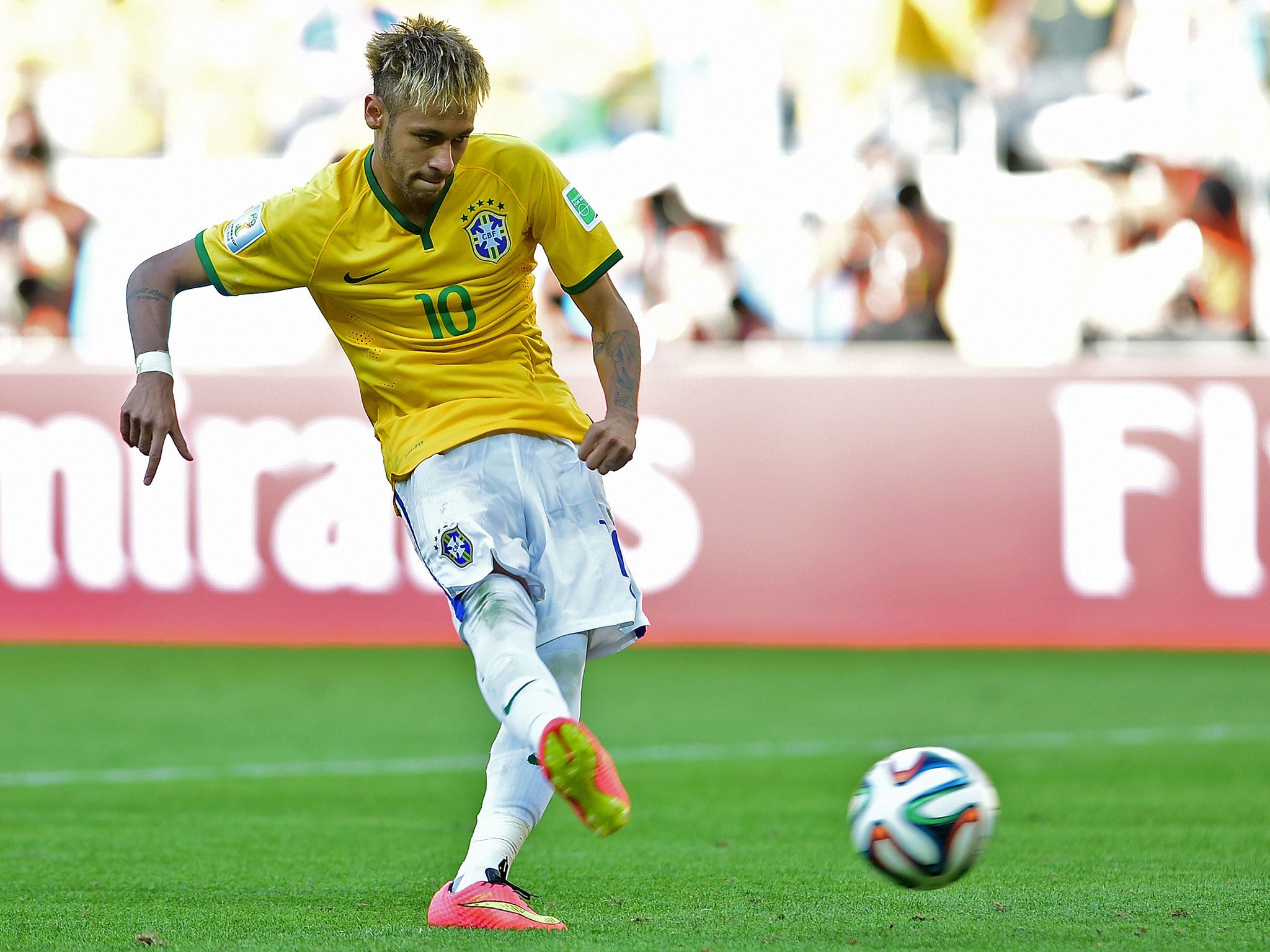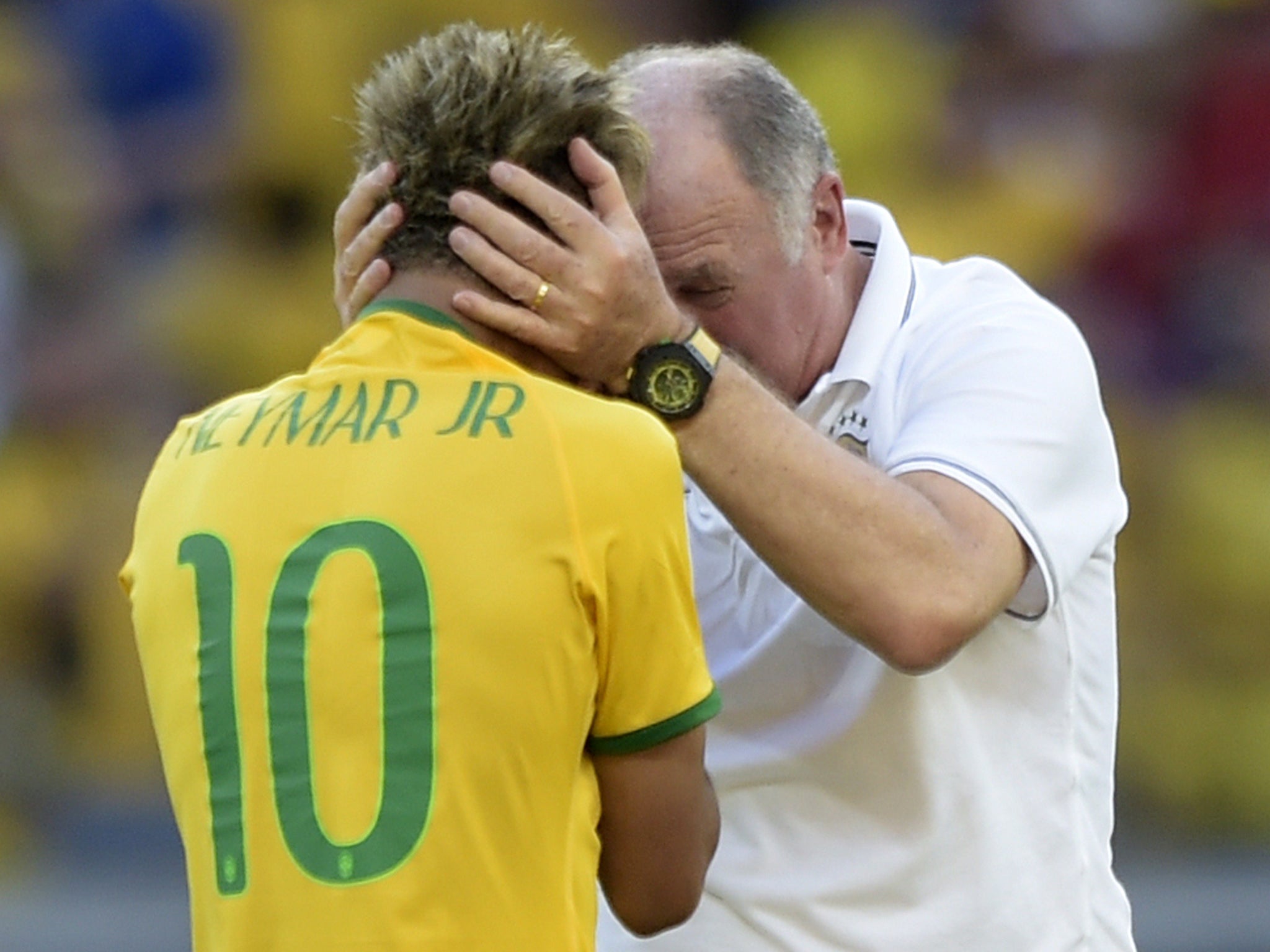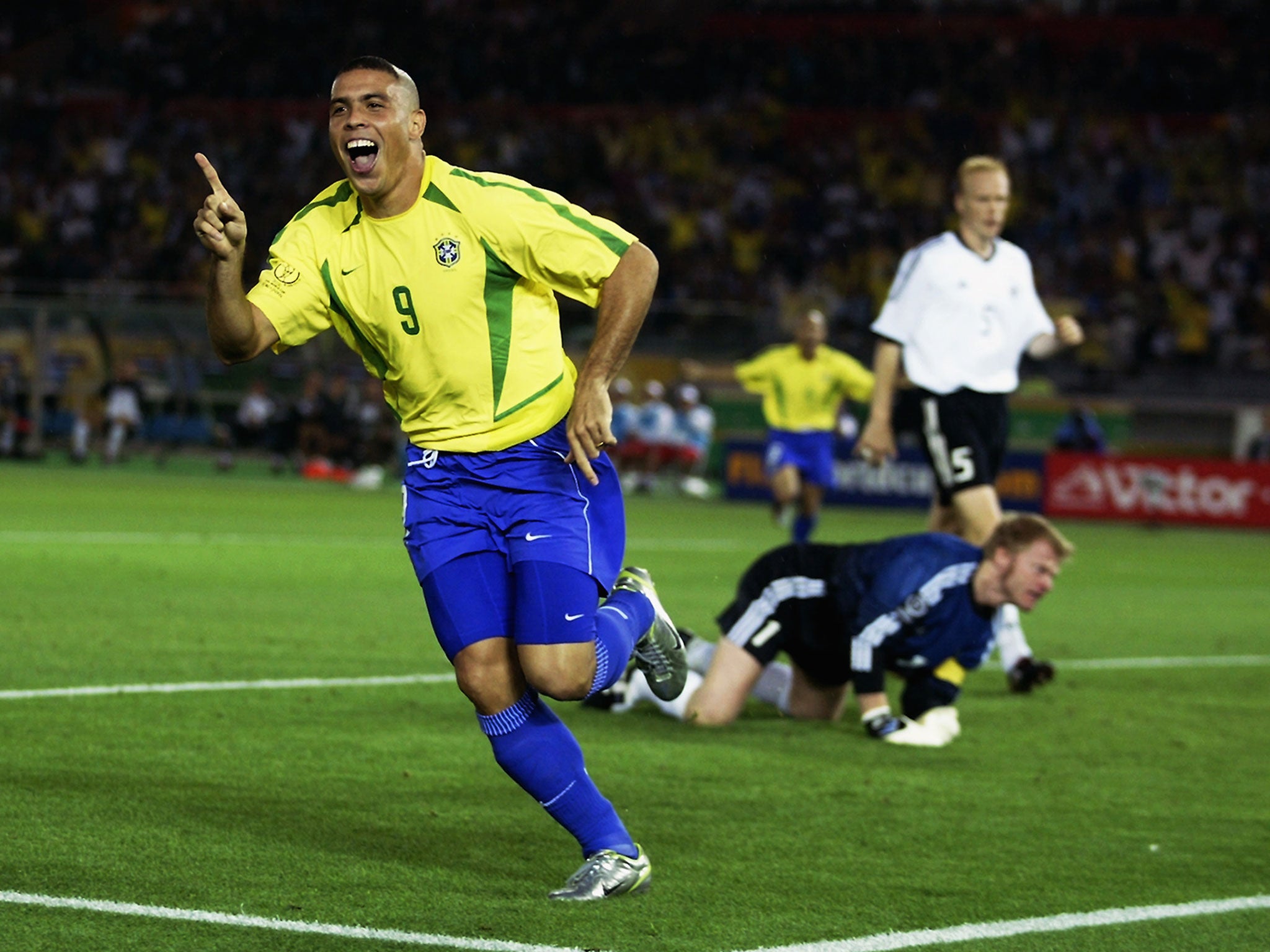World Cup 2014: Brazil's poster boy Neymar is born to handle penalty pressure
That Brazil’s young hero stuck away that crucial fifth spot-kick on Saturday continues the narrative that he can win the World Cup for his country

Your support helps us to tell the story
From reproductive rights to climate change to Big Tech, The Independent is on the ground when the story is developing. Whether it's investigating the financials of Elon Musk's pro-Trump PAC or producing our latest documentary, 'The A Word', which shines a light on the American women fighting for reproductive rights, we know how important it is to parse out the facts from the messaging.
At such a critical moment in US history, we need reporters on the ground. Your donation allows us to keep sending journalists to speak to both sides of the story.
The Independent is trusted by Americans across the entire political spectrum. And unlike many other quality news outlets, we choose not to lock Americans out of our reporting and analysis with paywalls. We believe quality journalism should be available to everyone, paid for by those who can afford it.
Your support makes all the difference.When it comes to penalties at this World Cup, the one scored by Neymar that features most often on Brazilian television is the spot-kick he tucks away in an advert for the Claro mobile phone network, broadcast in just about every commercial break since the tournament began. That penalty segues into him cheerfully dribbling around a group of delighted schoolchildren before delivering the sponsor’s message to camera.
Put simply, the country’s No 10 is everywhere in Brazil. From Nike billboards, all the way to the television commercial for the Guarana Antarctica drink, in which even Luiz Felipe Scolari sends himself up for the benefit of the team’s star. Neymar is on the cover of the current Brazilian edition of Vogue, along with his compatriot, the model Gisele Bündchen. His team-mate Hulk has had to make do with front-page billing on Men’s Health.
The stakes could not really be any higher. The best-paid Brazilian footballer in the history of the domestic game, and now worldwide, he and his father, Neymar Senior, have been unabashed in realising the boy wonder’s value ever since his early teens at Santos. Come 3.50pm on Saturday he was faced with the age-old question: could he deliver in a penalty shoot-out, under intense pressure, with the fifth spot-kick of five?
“Neymar is a straightforward lad and he likes playing football,” Scolari said. “So when he goes to take that penalty it’s like he’s playing in Santos with his friends. Like he’s having a kickabout with his mates.” We knew what he was trying to do, but no one in that stadium believed it was anything other than the most pressured moment of his young career.
Miss that last spot-kick and, had Brazil been eliminated, the mood would have changed considerably for Neymar Junior. He may yet win league titles and Champions Leagues with Barcelona, but he will never play in another World Cup in Brazil. That he scored, and his team won, only continues the narrative that the boy-prince of Brazilian football is capable of delivering his country its first World Cup on home soil.
For now, there are concerns about Neymar’s fitness after what Scolari and many in Brazil considered Chile’s targeting of the player. Scolari complained that Neymar had played 75 minutes of the game with an injured thigh and the Brazil bench was furious that the referee Howard Webb did not penalise Arturo Vidal for a challenge that sent their star player toppling headfirst to the ground. In fact, Neymar made the most of it.
The way Colombia approach the Neymar threat is likely to become a theme in the next few days as Brazil build up to the quarter-final against their fellow South Americans on Friday in Fortaleza. In Neymar’s early days as a footballer one of his coaches at Santos, Wanderlei Luxembourgo, hit upon a nice turn of phrase to describe his young player’s physique. He called him a “file de Borboleta”, a “butterfly fillet” or, to put it another way, there was not much meat on him at all.

In that respect, Neymar is the purist’s player. He is no weakling but his success is largely dependent on technique, guile and pace rather than being able to fall back upon any great physical strength – either natural or developed. All bony elbows and knees, he still resembles the adolescent prodigy for whom the seniors’ kit is a size too big. How referees reward him with decisions on Friday, and potentially beyond, will be crucial to Brazil’s progress.
The biography Planet Neymar, by the Brazilian journalist Paulo Vinicius Coelho, is a fairly sympathetic work but offers clear-eyed analysis of the ambition and self-belief that have fuelled his career. Even before his transfer to Barcelona and the ensuing scandal that ended the club presidency of Sandro Rosell, Neymar and his father, a former professional footballer himself, were unafraid to realise the player’s value.
According to Coelho, when Neymar Junior was just 13, and with Real Madrid eager to sign him, Santos guaranteed the boy and his father two million Brazilian reals (£530,000) payable in four instalments up to the age of 19, a monthly salary of 16,000 reals and a penthouse near the Vila Belmiro stadium. His team-mates in the club’s youth teams earned 170 reals a month.
As with that deal, Neymar’s sponsors will meet their obligations to him whether he wins the World Cup for Brazil or not. The expectation is, naturally, that he will one day challenge the status of the world’s two leading players, Lionel Messi and Cristiano Ronaldo. His record of 35 goals for Brazil in 53 caps is phenomenal. He scored his 100th professional goal on his 20th birthday. Ronaldo had 28 goals for club and country at the same age.

There is scope for debate over the relative merits of playing domestic football in Brazil, which Neymar finally left last summer for Barcelona, and the European leagues. What is not in doubt is that Neymar’s career has had an extraordinary start. Messi turned 22 during his first prolific season at Barcelona but by then he had not scored anything like the number of goals for Argentina that Neymar has for Brazil. Now, at 27, Messi only has seven more international goals than the younger man.
In Planet Neymar, Coelho tells an intriguing story about the power Neymar wielded at Santos even at the tender age of 18. It also gives a clue as to why his penalty on Saturday was, for those Brazil fans who have followed his career, not a foregone conclusion.
In a league game in 2010, Neymar’s then manager at Santos, Dorival Junior, had forbidden the player from taking a penalty because of what Coelho described as a “poor recent record, most caused by badly executed Panenkas and stutter-steps”. Neymar swore at his manager, a row ensued and Dorival insisted to the club president that the player be banned.
Neymar was suspended for one game. “It was Dorival who ended up being dropped,” Coelho writes, “and for a distinctly determined amount of time: for ever. He was fired.”
Join our commenting forum
Join thought-provoking conversations, follow other Independent readers and see their replies
Comments